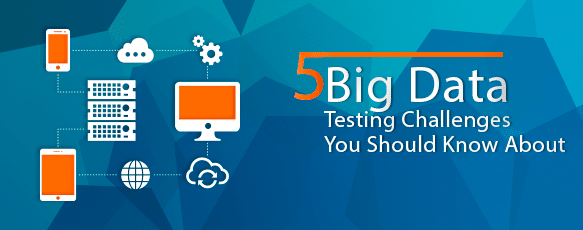10 Signs You Need Help With Big Data & Analytics Testing
|
Listen on the go!
|
Many industries, of late have decided to venture into the new world of Big Data and Analytics. They are slowly beginning to fully understand the limitless benefits that Big Data unearths for them, but a lot of enterprises are also struggling to deduce useful information from their Big Data programs. Many missteps made by a company are due to the fact they haven’t tested their Big Data processes and protocols thoroughly.
Here are 10 signs that clearly indicate if one needs help with Big Data and Analytics testing:
- High amounts of down-time: During the deployment of Big Data applications revolving around predictive analytics, organizations might face a multitude of problems. It is almost certain that issues have gone un-checked during data collection in such cases. This is easily tackled by testing instantly during data collection and deployment, thereby reducing total down time.
- Issues with scalability: Usually, the development cycle starts with smaller data sets and gradually progresses to handling larger sizes. If the initial runs of the application work as designed, but if results tend to deviate, issues with scalability become quite evident. One can avoid this entirely by using smart data samples to test the framework of the application at key moments.
- Poor efficiency: Big data applications extract information from data sets across many channels in real time to perform data analysis. Frequently, the data obtained is extremely complex and is prone to be full of inaccuracies. The quality of data needs to be tested from the source to its last destination to ensure its reliability, thereby increasing the overall efficiency throughout the process.
- Bad optimization: A manufacturer should ideally be able to create new business process with the help gained from Big Data and predictive analytics. Inability to handle data in an appropriate fashion over an extended period of time, visibly indicates improper optimization of existing processes to deliver the best results. With the right mode of testing, this can be avoided.
- Inadequate quality: While using Big Data, various characteristics associated with data need to be checked, some of them being: validity, accuracy, conformity, consistency, duplicity, etc. If one or more aspects are ignored, the quality of data takes a massive hit. An organization should invest in thoroughly checking the data to ensure proper functionality.
- Lapses in Security: Issues with security while dealing with Big Data can be catastrophic for any organization. Data sets containing confidential information need to be protected to maintain client’s trust. Testing should be carried out at various layers of the application using different testing methods to avoid becoming a victim of hacking.
- Sub-par Performance: Since Big Data applications interact with live data for real time analytics, performance is key. Performance testing, when run alongside other types of testing, such as scalability and live integration, testing allows one to stay competitive.
- Issues with the digitization of information: Even today, a substantial amount of information exists in the non-digital forms [paper documents] and hence is not’t available at the click of a button. As organizations convert those to digital forms, it is important to adequately test the data to ensure information isn’t lost or corrupted.
- Inconsistent functionality: Access to a lot of different data sets today is what makes Big Data lucrative. An enterprise can generate limitless possibilities with the right kind of knowledge. But if the results acquired over time with Big Data applications and predictive analytics turn out to be inconsistent, it becomes a case of hit or miss for the organization. Appropriate testing allows them to determine variability accurately and eliminates uncertainty.
- Ensuring competitive advantage: An organization can continue to stay relevant in today’s highly competitive and dynamic market while using by employing the use of the right testing tools available to them to get the best results.
Big Data testing has a lot of prominence for todays’ businesses. If the right test strategies and best practices are followed, then defects can be identified in the early stages. To know more about Big data testing, Contact Cignitis team of Big Data testing experts.





Comment (1)
Agree. Big data testing can be a challenge. Both the volume & variety of data, as well as the inconsistencies that come from unstructured data sets.
You need to be able to test both your inputs (GIGO) and outputs. I’ve seen lots of instances where analytics is garbage because the data is not sane as it is entered into the system (which can be alleviated with broad unit tests on ETL), but even more where it mishandled after processing (which requires more traditional QA).